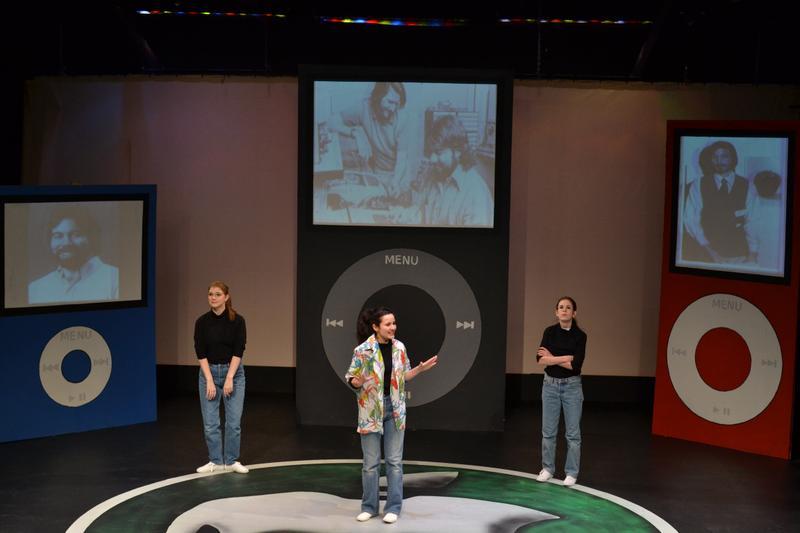If you’re reading this article, you’re probably an MU student. If you’re an MU student, you probably own a Mac, iPhone, iPad, iPod or some iCombination of all four. However, I’m willing to bet you’ve never thought of where those products came from or of the hands that built your iPhone piece by piece somewhere on the other side of the world.
“The Agony and Ecstasy of Steve Jobs” tells the story of the three words, “Made in China.” The story follows Apple from its conception to the plight of the Chinese-factory production-line workers to the final dominance and startling culture control of Steve Jobs’ technology machine. Written originally as a one-man show by Mike Daisey, a self-proclaimed technology know-it-all and Steve Jobs worshipper, this play has been adapted by the Warehouse Theatre Company of Stephens College. It is a play which, much like its subject, you might find, well, surprising.
Now, I’m no theater connoisseur, and I didn’t even think I would like to see the play. But when I left that show, I had a strange urge to turn around in hopes that I could go back inside the unique showcase and see it once more. With a captivating combination of spirited dialogue, talented actresses, a dynamic set and enthralling storytelling, the two-hour show seemed over in a blink of an eye, and I wish I had not blinked.
Director John Lampe’s adaption of Daisey’s original play brings you across all spectrums of the Apple saga. It details the life of Steve Jobs: dropping out of college, building the first revolutionary Macintosh, dropping acid in a hippie commune and asserting his complete and unflinching control over the future of technology. It also portrays life for the workers in the ominous Foxconn factories of southeast China, where they build each Apple product by hand at blazing speeds under strict video surveillance.
At the end, we’re brought back to the United States to the shelves of Apple outlets and Best Buys and bookstores. We return to the moment where we open our sparkling new iPhone, Mac or iPod, and we’re finally forced to consider the journey it took to arrive.
_Director Q&A:_
Director and Stephens College junior John Lampe talks about the controversial show his interpretation and why MU students need to see it.
**[MOVE]:** When playwright Mike Daisey first started “The Agony and Ecstasy of Steve Jobs,” he was accused of slander and false reporting. What do you think this says about the play itself?
**[John Lampe]:** I think it calls into question the difference between journalism and story telling, the two are not really the same. It’s absolutely reflective of the playwright’s life; even if the facts aren’t exactly the same‚Ķall the things sort of happened. He just amalgamated them into one story.
**[M]:** How will Warehouse’s production distinguish itself from Daisey’s original play?
**[JL]:** I always make the joke [that] instead of a 350-pound white guy on a stage for two hours, you have four 20-year-old women. The audience gets a different perspective, just naturally.
**[M]:**Why do you think students and residents of Columbia should come see this play?
**[JL]:** I think it’s a play that challenges people, it’s important that people think in a new way about products and consumerism. iPhones don’t magically appear on shelves, they come from someone who made them, and the goal of the show is not to make people blow up the Apple Inc. store, it’s more for people to wake up.ĶI call it a low-key war against apathy. I think audiences will walk away from the show with a new perspective.








